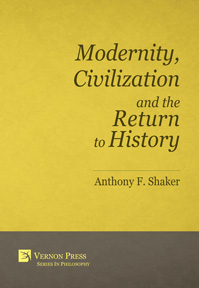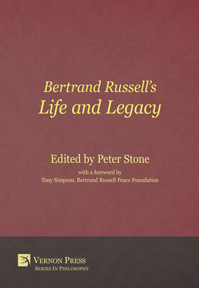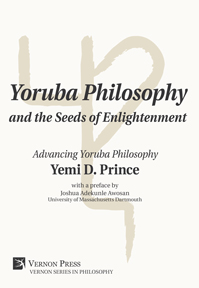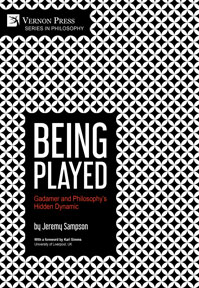Philosophy’s Treason
Studies in Philosophy and Translation
David Morgan Spitzer (Ed.)
by Natalia Avtonomova (Institute of Philosophy, Russian Academy of Sciences, Moscow, Russia), Mauricio Cardozo (Federal University of Paraná, Brazil), Sabina Folnovic-Jaitner (University of Vienna, Austria), Harvey Hix (University of Wyoming, USA), Paulo Oliveira (University of Campinas, São Paulo, Brazil), David Morgan Spitzer (Harrisburg Area Community College), Douglas Robinson (Hong Kong Baptist University, China)
Purchase this book
(click here to change currency)
"Philosophy’s Treason" not only eloquently shows how translation works within Western philosophical discourse, but it does so while opening a much-needed dialogue with translation studies as an academic discipline. The poststructural thus connects with both the empirical and the experiential, drawing on the reason of those who have actually translated philosophy.
Prof. Anthony Pym
The University of Melbourne
[...] Whether discussing untranslatability, the translator’s invisibility, or postcoloniality, translation theorists’ application of the hermeneutics of suspicion typically involves moving even further to the margin and exterior of the given agent, discourse, or – in this case – book than has already been done. If hermeneutic translation theory were a branch of cosmology, it would study the contours around the universe. As Robinson points out, translation functions precisely on the border between agency and non-agency since a translator can almost always disguise an ideologically inflected decision as a norm-abiding attempt at fluency or at closeness to the source text. This clever closing move by one of the mages of contemporary translation theory would be enough to recommend the purchase of this slim volume for your library
Extract from book review appearing on the journal 'Translation Studies', 19 Apr 2021. Reviewer: Spencer Hawkins (University of Mainz, Germany)
Philosophy’s Treason: Studies in Philosophy and Translation gathers contributions from an international group of scholars at different stages of their careers, bringing together diverse perspectives on translation and philosophy. The volume’s six chapters primarily look towards translation from philosophic perspectives, often taking up issues central to Translation Studies and pursuing them along philosophic lines. By way of historical, logical, and personal reflection, several chapters address broad topics of translation, such as the entanglements of culture, ideology, politics, and history in the translation of philosophic works, the position of Translation Studies within current academic humanities, untranslatability within philosophic texts, and the ways philosophic reflection can enrich thinking on translation. Two more narrowly focused chapters work closely on specific philosophers and their texts to identify important implications for translation in philosophy. In a final “critical postscript” the volume takes a reflexive turn as its own chapters provide starting points for thinking about philosophy and translation in terms of periperformativity.
From philosophers critically engaged with translation this volume offers distinct perspectives on a growing field of research on the interdisciplinarity and relationality of Translation Studies and Philosophy. Ranging from historical reflections on the overlap of translation and philosophy to philosophic investigation of questions central to translation to close-readings of translation within important philosophic texts, Philosophy’s Treason serves as a useful guide and model to educators in Translation Studies wishing to illustrate a variety of approaches to topics related to philosophy and translation.
Introduction: philosophy’s treason
D. M. Spitzer
1. At translation, through philosophy
H. L. Hix
University of Wyoming, USA
2. Aggregates in the deed: Wittgenstein’s surveyable representations, family resemblance, and translation theory
Paulo Oliveira
University of Campinas, São Paulo, Brazil
3. Erotics of intuition: translation and translative gestures in Critique of Pure Reason
D. M. Spitzer
4. Philosophical untranslatables and the concept of equivalence
Sabina Folnović Jaitner
University of Vienna, Austria
5. Philosophy, translation, “untranslatability:” cultural and conceptual aspects
Natalia S. Avtonomova
Institute of Philosophy, Russian Academy of Sciences, Moscow
Translated by Tatevik Gukasyan
6. Translation, humanities and the critique of relational reason
Mauricio Mendonça Cardozo
Federal University of Paraná, Brazil
7. Reading and translating philosophy periperformatively: a critical postscript to Philosophy’s Treason
Douglas Robinson
Hong Kong Baptist University, China
Contributors
Bibliography
Index
D. M. Spitzer holds a PhD in Comparative Literature and an MA in Philosophy from Binghamton University (USA), an MFA in poetry from Vermont College of Fine Arts (USA), and a BA in Liberal Arts from Goddard College (USA). He is also an alumnus of Harvard University’s Institute for World Literature (2016). Specializing in early Greek thinking and translation theory, Spitzer has presented work at professional conferences in the US and in Europe and has organized sessions on translation at conferences of the Northeast Modern Language Association and the American Literary Translators Association. Dr. Spitzer’s writing has appeared in Translation Review, Mosaic: an interdisciplinary critical journal, and Numéro Cinq. At present, Spitzer is preparing a book-length study of early Greek philosophy from the interdisciplinary perspectives of literary trauma theory, diaspora studies, and translation theory, as well as several article-length studies in the fields of philosophy and translation. Also a poet, Spitzer is the author of A Heaven Wrought of Iron: Poems from the Odyssey (Etruscan 2016) and abyss of departures, an image-text collaboration with Sarashiva Spitzer (forthcoming, Hawai’i Review e-chapbook series), both of which contain threads of translation. His poems and translations have appeared in journals such as North American Review, Interim, Cyphers, and Numéro Cinq.
Soviet and post-Soviet philosophy, Soviet and post-Soviet translation, relationality, relational reason, untranslatability, translation, interdisciplinary humanities, languages, translative gestures, Transcendental Aesthetic, philosophy of language
See also
Bibliographic Information
Book Title
Philosophy’s Treason
Book Subtitle
Studies in Philosophy and Translation
ISBN
978-1-62273-506-8
Edition
1st
Number of pages
216
Physical size
236mm x 160mm

![Philosophy’s Treason [Hardback]](/file/11160/6393c24aeac505979514621eef8395e4/1580462046.jpg)







